Bringing hidden labor to light featuring Ai-Jen Poo
Transcript
[Bringing hidden labor to light. Ai-Jen Poo, executive director, National Domestic Workers Alliance. Trustee, Ford Foundation. An Asian woman with dark hair tucked behind her ears, wearing a black satin wrap dress.]
ANNOUNCER: Please welcome Ai-Jen Poo.
[applause]
AI-JEN POO: Good morning. Oftentimes, when we’re looking for answers about the future, we go to centers of power and influence. Wall Street, Washington DC, Silicon Valley. One powerful thing I’ve learned through my work with domestic workers is that sometimes the answers about the future actually lie in the margins. In the margins and shadows of society, we can often find both the signals of what’s to come, for all of us, and the solutions for the future. I work with the nannies who take care of our children, the house cleaners who maintain order in our chaotic homes, the home care workers who care for our aging loved ones and support our loved ones with disabilities. They’re there when we come into the world, they walk alongside us as we grow and come into our own, and they’re there as we prepare to leave this world. They do the work in our homes that makes everything else possible in the world. It powers everything, and yet, it is some of the most invisible and undervalued work in our entire economy. The millions of women, mostly women of color, who do this work, work incredibly hard and still struggle to make ends meet. The average wage of a home care worker, for example, is $15,000 per year.
When I first started organizing with domestic workers in 1998, they were very much seen as on the margins and fringes of our economy. But today, when I think about the conditions that define domestic work—unpredictable hours, piecing together work from lots of different gigs, no benefits, no career pathways, no access to a safety net or job security—these conditions define reality for more and more American workers every single day. That’s why we call domestic workers the original gig economy workers. And these are some of the fastest-growing occupations in our entire workforce today. As the older population grows, and people live longer, and millennials start having children, we need more caregivers than ever before. And unlike other segments of our workforce, these are jobs that can’t be outsourced, and they’re not going to be automated, at least anytime soon. They’ve been trying to build a robot to fold a towel in a lab in LA for 11 years and still have not been successful!
[laughter]
These are, without question, going to be a large share of the jobs of the future. And the thing about justice-based philanthropy is it not only knows to look to the margins to see the future, it listens to the people at the margins for solutions. Domestic workers have been organizing for decades. They have broken out of the isolation and invisibility of working hidden behind closed doors and neighborhoods around the country to come together. We have developed a new vision for rights. Domestic workers’ bills of rights that have been passed in nine states since 2010. To not only challenge the generations of exclusion from basic labor laws that have been subjected to this workforce, but to create a pathway to good jobs for the 21st century for this workforce. We’ve even created a technology-based benefits platform, called Alia, to give domestic workers access to benefits for the very first time. In the margins of our economy, domestic workers have been making a way out of no way.
And this way, powered by justice-based philanthropy, has the potential to solve for the future of work not just for domestic workers, but for all of us. Justice-based philanthropy knows to look everywhere for solutions, including the margins. Especially the margins. In a charity model, I feel generous towards you and so I give. Charity still implies a separation between you and me. A justice model draws a circle around us both, and it creates a “We.” “We” who are equally deserving of dignity, opportunity, and fairness. In a justice model, there are no victims or saviors, only survivors and leaders. We are all protagonists in the story—a road map for philanthropy that seeks justice everywhere, including at the margins, and invests in the people and the solutions it finds until the margins disappear.
[applause]
[New gospel of wealth. What does #GenerosityToJustice look like to you? Ford Foundation dot org forward slash new gospel.]
Accessibility Statement
- All videos produced by the Ford Foundation since 2020 include captions and downloadable transcripts. For videos where visuals require additional understanding, we offer audio-described versions.
- We are continuing to make videos produced prior to 2020 accessible.
- Videos from third-party sources (those not produced by the Ford Foundation) may not have captions, accessible transcripts, or audio descriptions.
- To improve accessibility beyond our site, we’ve created a free video accessibility WordPress plug-in.
Ai-jen Poo, co-founder and executive director of the National Domestic Workers Alliance, tells us why and how we need to value “the work that makes all other work possible.”
“Charity is like a Band-Aid. It’s getting you the resources to address an injury, but not actually getting at the reason for the injuries to begin with.”
– Ai-jen Poo
Learn more about New Gospel of Wealth
Other videos in this series
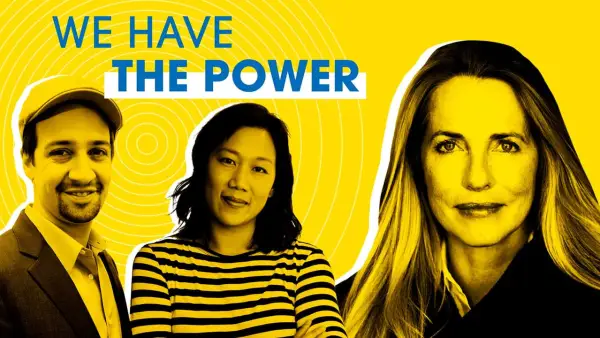
Let’s rethink giving
How can we reimagine philanthropy so that we create a future where there is justice and dignity for all? What are the root causes of the issues and how do we encourage the participation of many and not just a few?
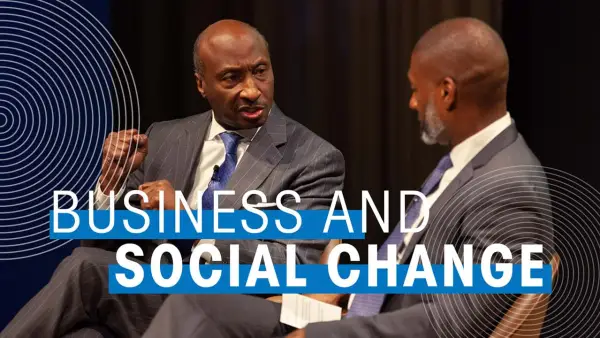
The business of justice featuring Kenneth Frazier and Charles Blow
Kenneth Frazier, CEO of Merck and Co, believes one of the greatest injustices in our society is the health disparities experienced by women of color. A zip code is more likely to determine health outcomes than genetic code. Frazier uses philanthropy to address mortality rate and wants to see more medical personnel listen to their women patients and patients of color.
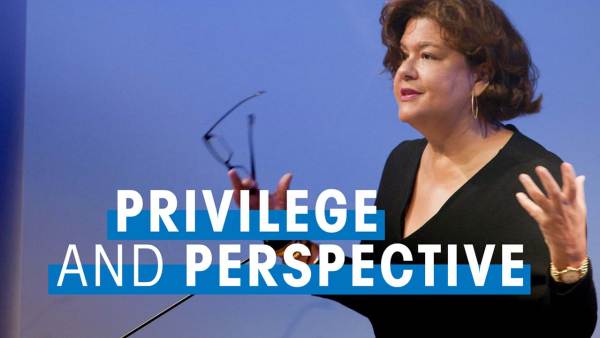
The privilege of perspective featuring Elizabeth Alexander
Elizabeth Alexander, president of the Andrew W. Mellon Foundation, on art, activism, and acknowledging adversity.
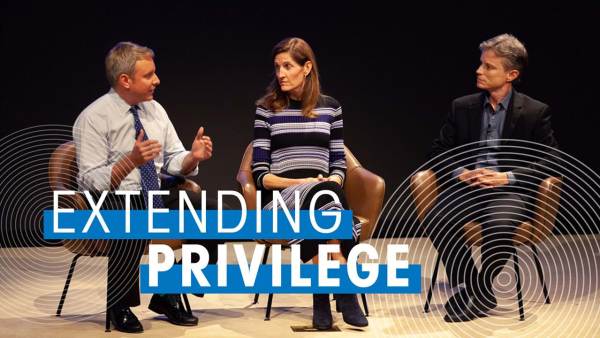
Extending privilege featuring Valerie Rockefeller and Henry Ford III
Henry Ford III, trustee of the Ford Foundation, and Valerie Rockefeller, chair of the Rockefeller Brothers Fund, discuss transforming philanthropy for the 21st century. The families have seen the value of impact investing and believe in partnerships to increase the difference that can be made.
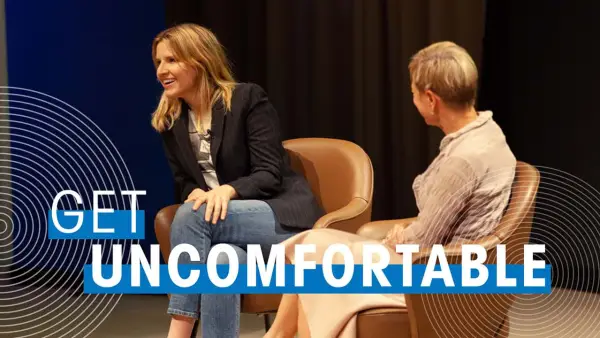
Getting proximate featuring Tara Westover and Hilary Pennington
Tara Westover, author of “Educated,” sees a disconnect between the rural and urban parts of the United States. She believes philanthropists need to be more proximate to the issues they care about, and that spending time with people who aren’t like you is key to disrupting inequality.
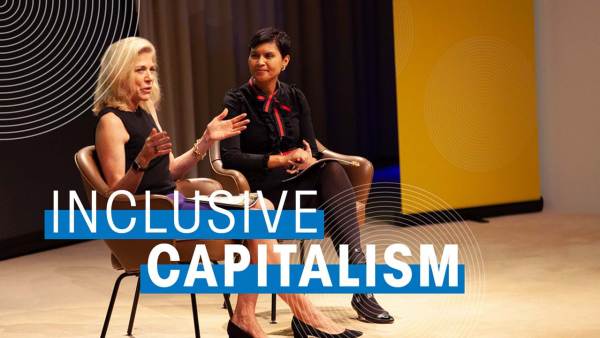
Can capitalism ever really be inclusive? featuring Lynn Forester de Rothschild and Stephanie Mehta
The top 1 percent of the United States controls 42 percent of the national wealth. Lynn Forester de Rothschild, founder of the Center for Inclusive Capitalism, explains that reimagining the economy and making it a sustainable, inclusive system that leads to strong economic growth requires reform.
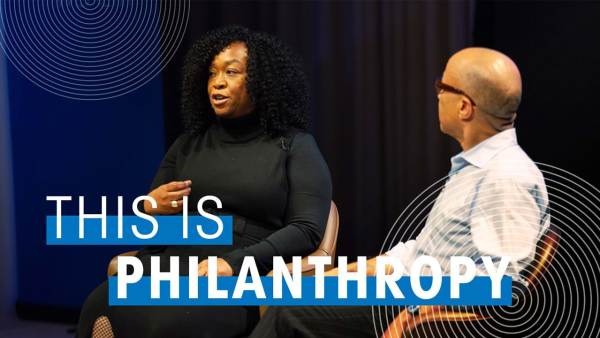
This is what a philanthropist looks like featuring Shonda Rhimes and Darren Walker
Writer and producer Shonda Rhimes has seen the power storytelling has to make change through her work, which centers marginalized people and issues. Rhimes believes philanthropy sets an example others can follow, and says supporting organizations that are already on the ground doing the work is key.
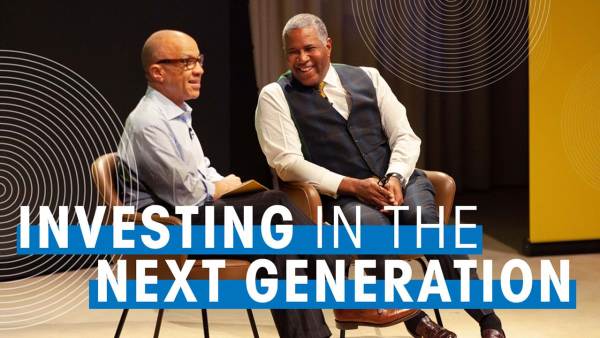
Catalyzing the potential of our time featuring Robert Smith and Darren Walker
Through philanthropy, Robert Smith, CEO of Vista Equity Partners, has alleviated the burden of student debt for a graduating class. He says private philanthropy can help address public policy challenges, such as student loan debt, and is a disruptive opportunity that liberates people to contribute to society in positive ways.
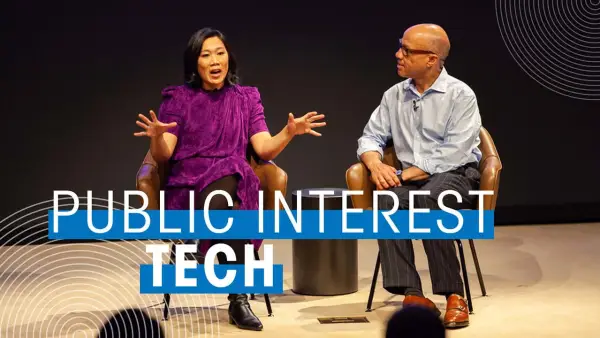
Tech funders changing philanthropy featuring Priscilla Chan & Darren Walker
The top 1 percent of the United States controls 42 percent of the national wealth. Lynn Forester de Rothschild, founder of the Center for Inclusive Capitalism, explains that reimagining the economy and making it a sustainable, inclusive system that leads to strong economic growth requires reform.
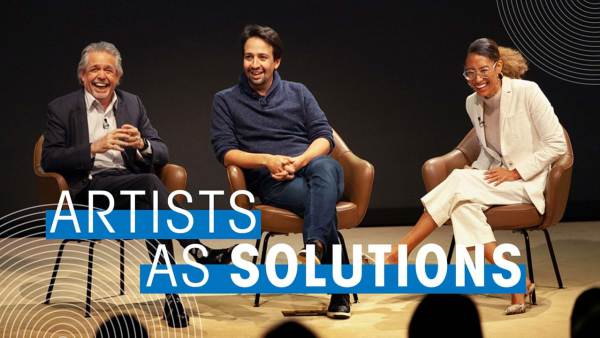
Why artists shouldn’t stay in their lane featuring Lin-Manuel Miranda, Luis Miranda Jr. and Elaine Welteroth
Composer and actor Lin-Manuel Miranda believes all art is political. He and his father, Luis A. Miranda Jr. of the MirRam Group, see the value philanthropy has to empower communities that may have been neglected, and allow them to share their stories through the arts, like Puerto Rico did after Hurricane Maria.
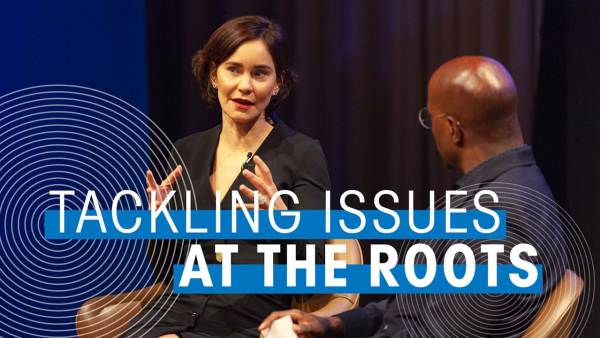
Good philanthropy needs government featuring Laura Arnold and Van Jones
Laura Arnold, co-chair of Arnold Ventures, believes policy change is the lever that will lead to sustainable change. She says we need to attack the systems that are creating the injustices we see, like criminal justice. Philanthropy can create better alternatives that governments can adopt.
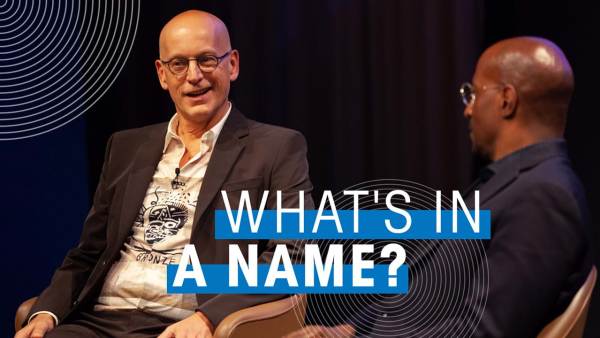
The power of a name featuring Jon Stryker and Van Jones
As a philanthropist, Jon Stryker, president of the Arcus Foundation, believes the act of naming gives power and influence to the work that is supported through his gifts. His philanthropy supports those on the frontlines of justice, providing resources and power to those who need it most.
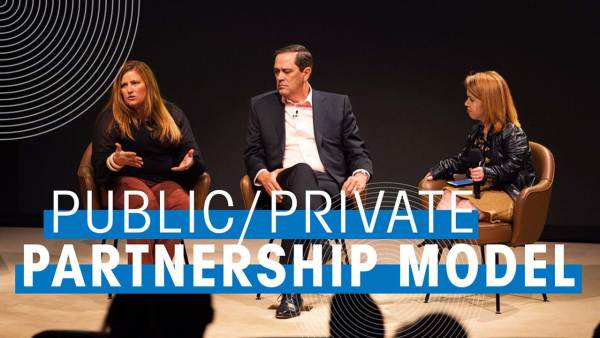
Public-private partnership: A new model for lasting impact featuring Jennifer Loving and Chuck Robbins
Jennifer Loving, CEO of Destination: Home, says a public-private partnership, like the one between her nonprofit and Cisco, headed by Chuck Robbins, can help create a model for the future of philanthropy, and tools like social bonds can help address some of the biggest crises of our time.
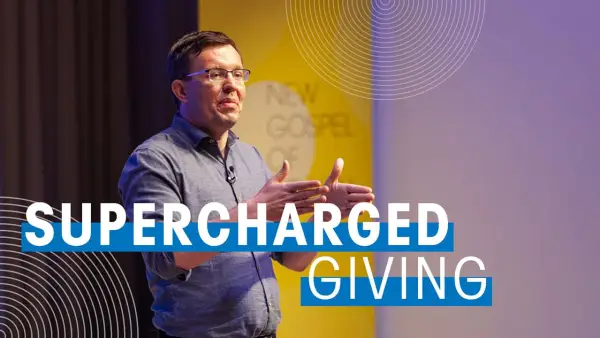
The new power of philanthropy featuring Henry Timms
CEO of Lincoln Center Henry Timms asks how philanthropy can supercharge civic engagement. Timms, who started Giving Tuesday, says trust-based philanthropy needs to shift from generosity to justice, driving more participation from more people, and encouraging meaningful ways to participate and collaborate.
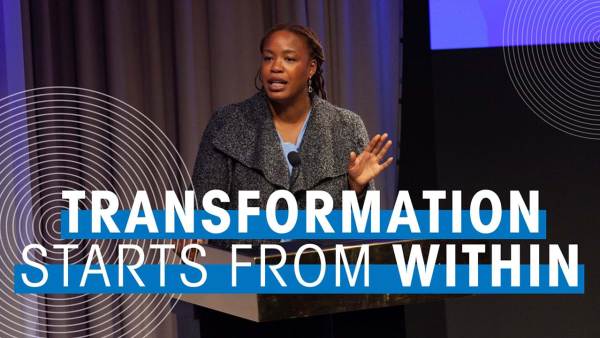
Transforming organizations from the inside featuring Heather McGhee
Heather McGhee, distinguished senior fellow at Demos, shares her experience of working to make the Demos think tank more diverse and led by people of color. Institutional racism, however slight, drives inequality, she says, so transformation needs to be a must-have and not a nice-to-have.
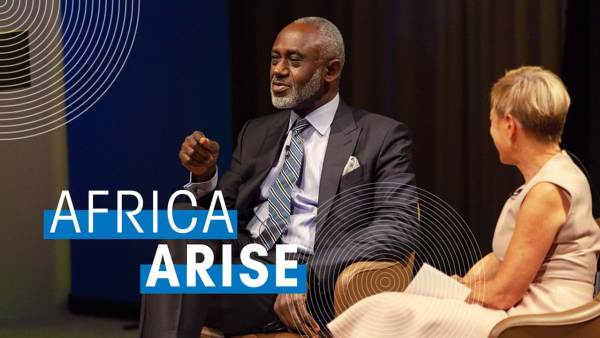
Africa, your time is now featuring Gbenga Oyebode and Hilary Pennington
Ford Foundation trustee Gbenga Oyebode has seen the value of impact investing on the African continent. He believes philanthropy should not just be giving, but investing with a social impact and an economic return. Giving is inherently part of African culture, but needs to be more strategic and collaborative.
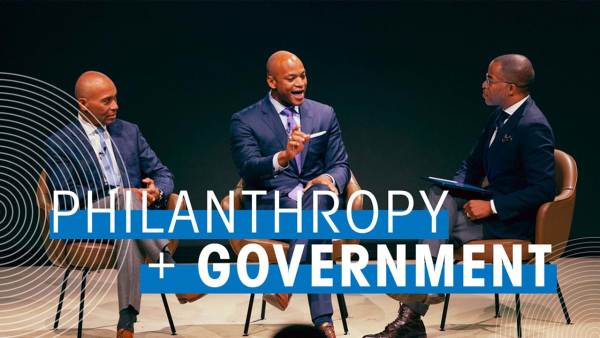
Why good government needs philanthropy featuring Deval Patrick and Wes Moore with Jonathan Capehart
Wes Moore, CEO of Robin Hood, and Deval Patrick, managing director of Bain Capital, see philanthropy working hand-in-hand with government in the fight for equality. Philanthropy can often provide the initial capital needed while government can take over and scale the solution.
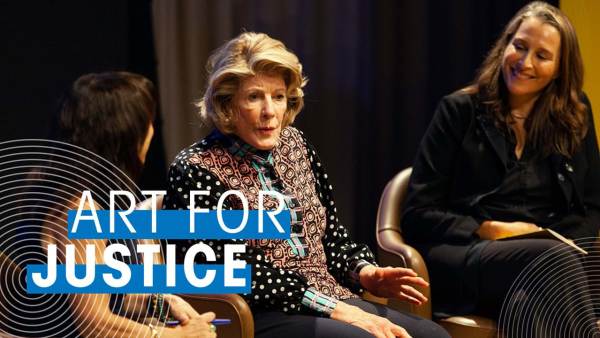
Art for Justice featuring Agnes Gund and Catherine Gund with Maria Hinojosa
The Art for Justice fund was created to help end mass incarceration. Founder Agnes Gund says philanthropy is about addressing issues like this. Catherine Gund believes art has an important part to play in the fight for racial justice and can help change the policies that led to mass incarceration.
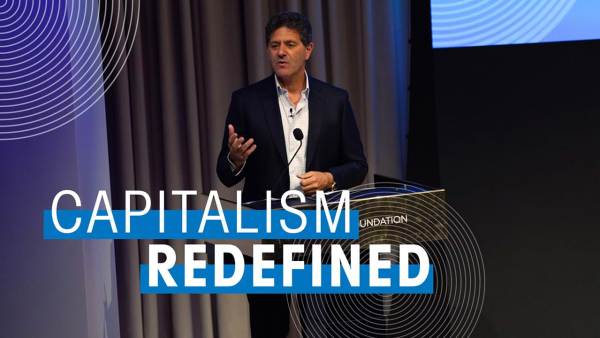
Capitalism redefined featuring Nick Hanauer
Entrepreneur Nick Hanauer asks us to reimagine the economy. He believes we need to change our beliefs about the economy to create a more just, more equitable society for all. By choosing better economic beliefs, we can change society for good.
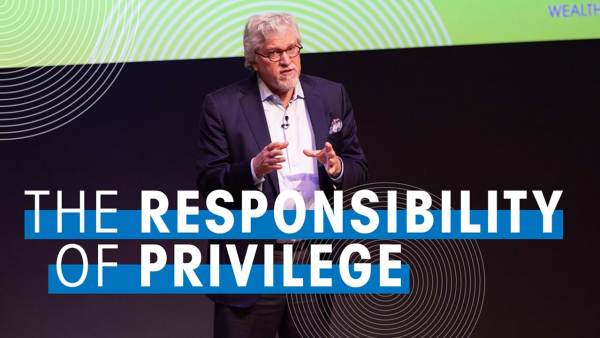
On using power and privilege for change featuring Jeff Raikes
Jeff Raikes, co-founder of the Raikes Foundation, says dismantling racism requires philanthropy to ditch its colorblind approach. People in power need to acknowledge that privilege is invisible to those who possess it. Privilege and power need to be transformed into a force for changing our society for the better.